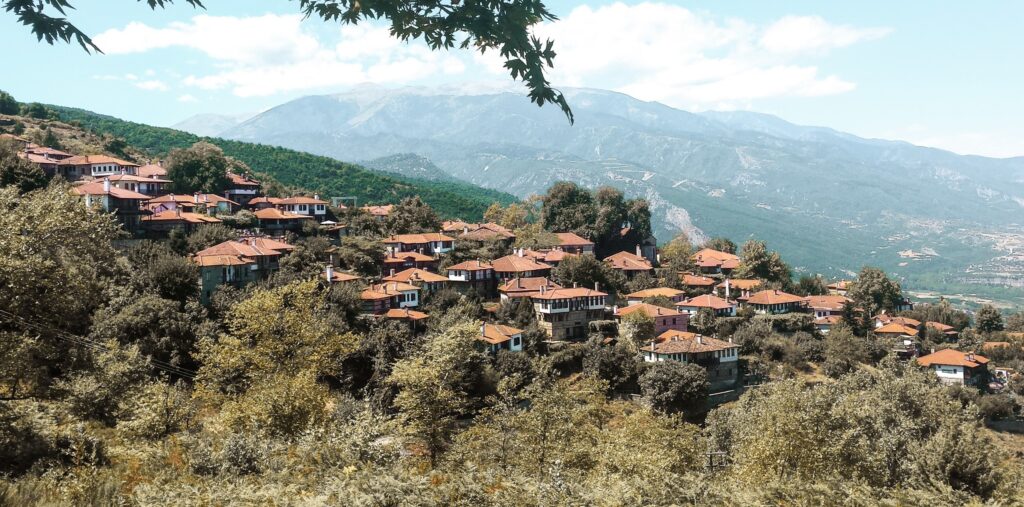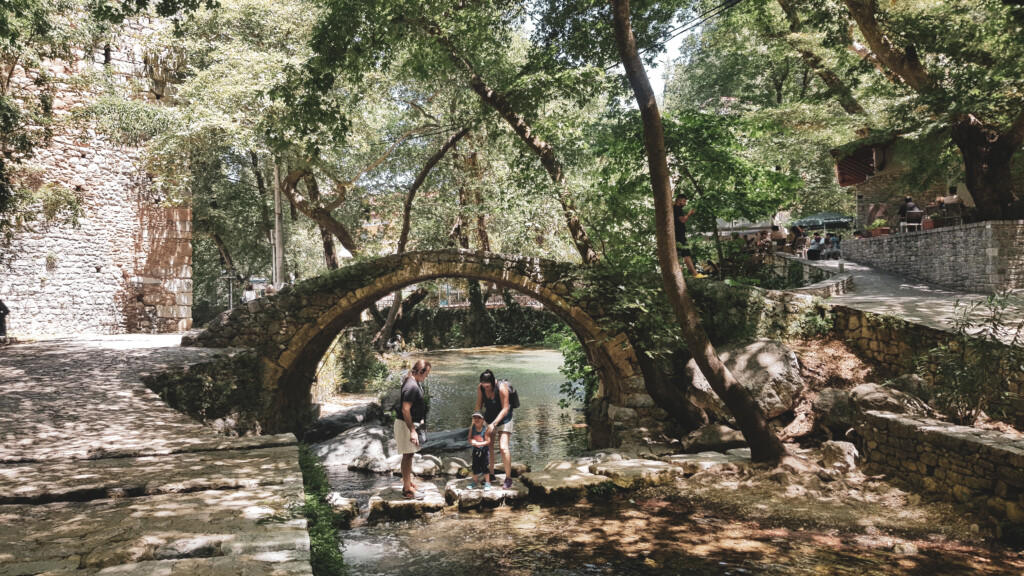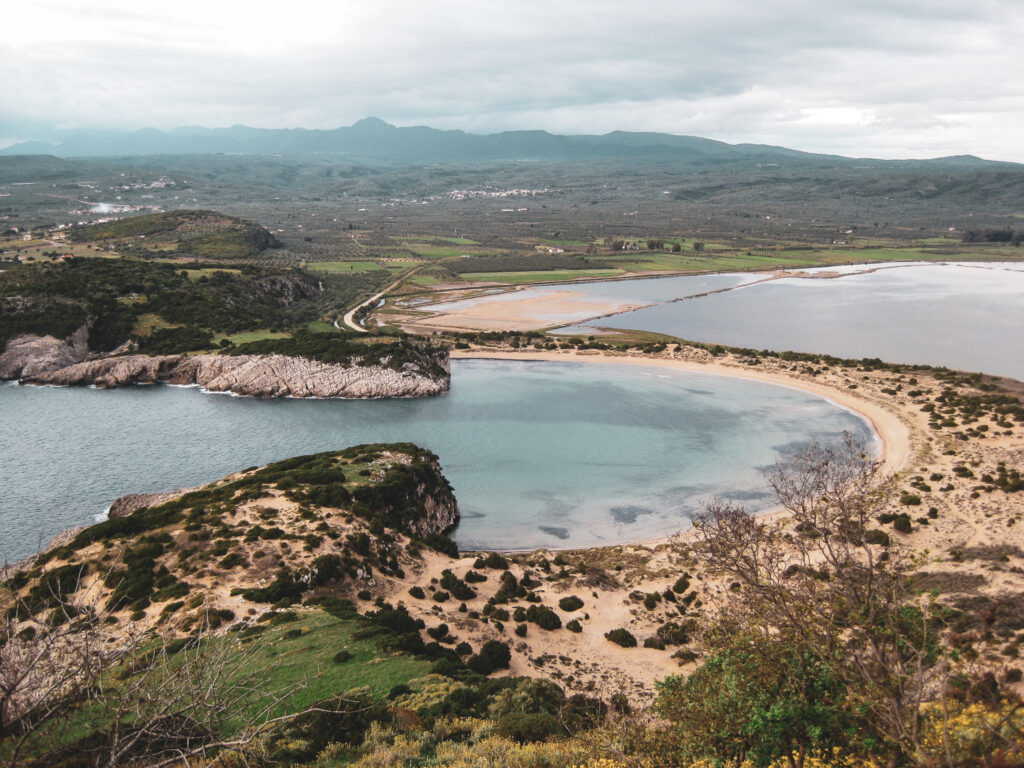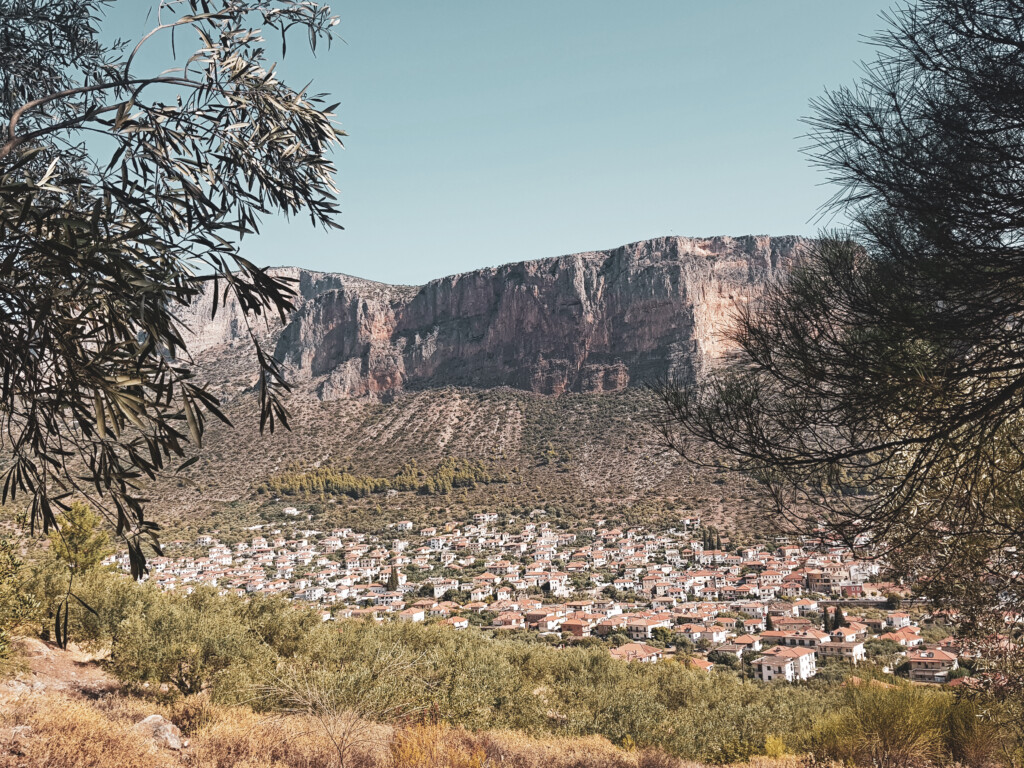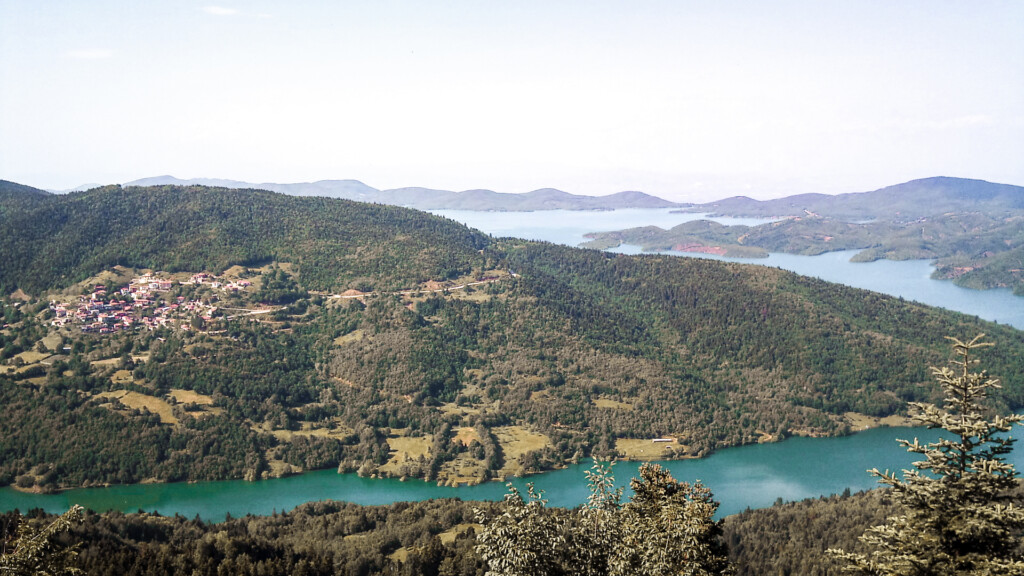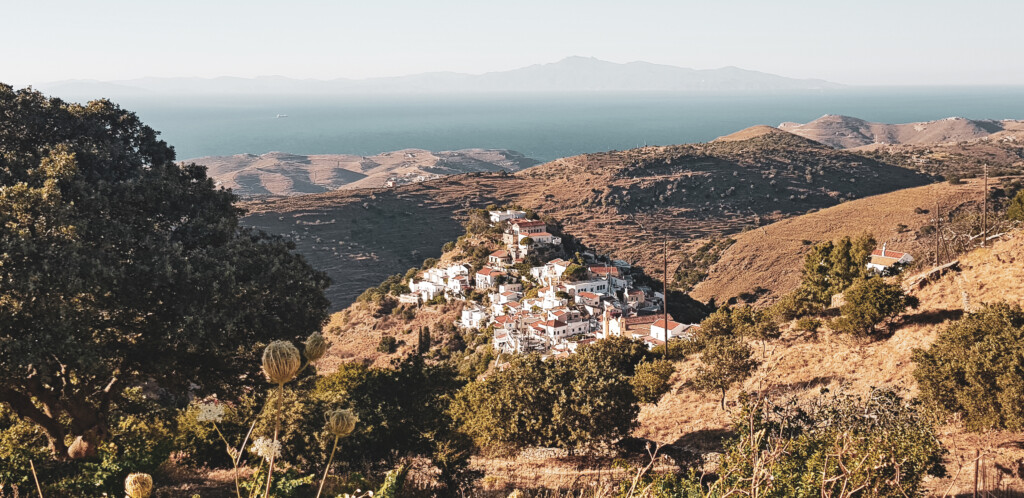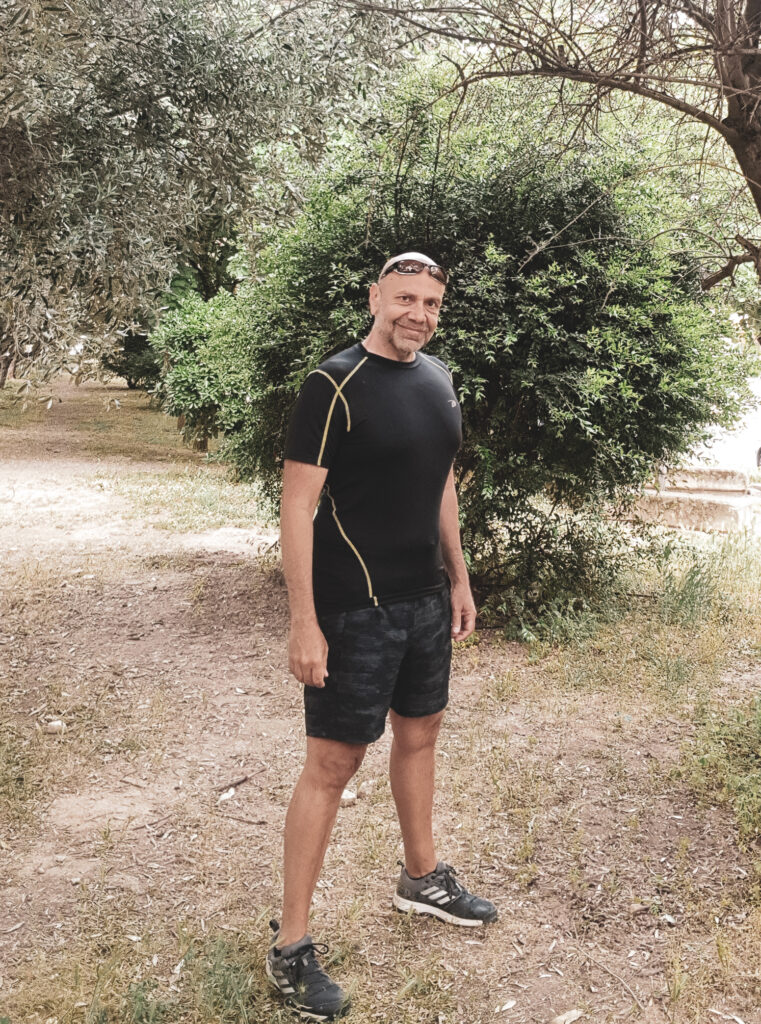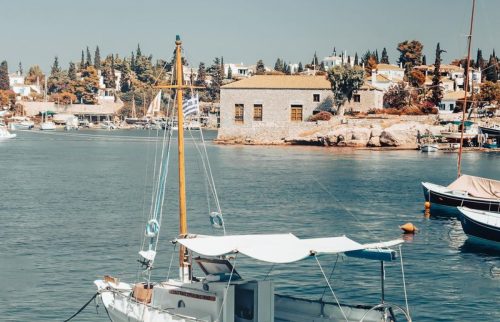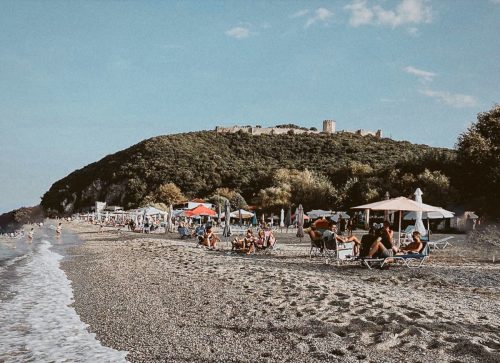Innovative, active and visionary, Iyad has for many years been dedicating his time to showing the very best of Greece’s ecological magnificence and potential.
For over a decade Lebanese-Canadian Iyad has travelled far and wide across Greece working to advance a more sustainable model of tourism and to highlight its multi-varied natural abundance. Through his responsible travel portal and resource hub, Ecotourism-Greece.com, he pours all his intimate knowledge about the country, its outdoor activities and its biodiversity into it. Here he talks to IN+SIGHTS GREECE Editor Alexia Amvrazi about the past, present and future of ecotourism, which is a hugely growing trend in the travel industry and for all the right reasons.
-
Livadeia -
Voidokilia
How did you get involved in Ecotourism?
I grew up in Greece and developed a deep love for the country, so I decided to use my education in tourism to change the existing tourism model beyond a happy-go-lucky sun, sea and sand summer destination. The old model neglected to highlight the fabulous natural bounty, heritage, gastronomy, traditions, and rich local culture of Greece’s different regions. It also favoured seaside destinations and cookie-cutter resorts, overlooking the mainland with its year-round hiking paths, family-owned guesthouses, and a plethora of outdoor activities. It was time to attract the travellers who preferred hiking over partying, sailing over sunbeds, and slow local cuisine over basic resort food or imported fast food.
What was Ecotourism-awareness like when you began 10 years ago?
Ecotourism was a vague concept belonging to the more niche “alternative tourism” category. The industry considered hikers, birdwatchers, climbers and nature lovers curious eccentrics. Destinations like Zakynthos, Crete and Kos were selling their rooms to ruthless tour operators who squeezed hoteliers to create low-cost vacations. Luckily, a new brand of European traveller was emerging, seeking more authentic experiences and immersive activities. Ecotourism-based activities, from hiking to learning about fauna and flora, to cooking Mediterranean farm-to-fork cuisine began emerging. Greece became ideal for eco-friendly activities such as rock climbing, diving, pottery making, hiking, sailing, birdwatching and more. It began offering enriching and rewarding experiences that the evolving travel market craved.
-
Leonido Rock Climbing -
Palstira -
Tzia
How has your vision of Greece changed since you launched this project?
With Ecotourism Greece I had bitten off more than I could chew! The more regions I explored, the more I realised that each region is a real treasure trove of natural and cultural gems, secrets and experiences. There were stunning natural landscapes, charming unknown villages, heavenly hiking paths, secluded monasteries with rare
Byzantine frescoes, forgotten archaeological attractions, Venetian or Frankish castles and centuries-old stone bridges where you least expect them. Endemic plants, rare animals, hundred-year-old trees and people battling to preserve them are in every corner of the country, and I’ve been overwhelmed with so much multifaceted beauty. I also came face to face with the threats to the country’s biodiversity, whether caused by climate change or people, making it very challenging to raise awareness and document it all online. Naturally, my knowledge of Greece has become so much more intimate and comprehensive.
Are other people supporting you? How does it become viable?
Early on we had decided not out to prioritise the environment over profit. While our project must be economically viable, our mission is to engage, educate and of course delight. We’re launching a mechanism where other lovers of nature and of Greece can contribute to our cause, becoming Ecotourism ambassadors for a minimum contribution to support the initiative. Businesses related to sustainability and ecotourism can also benefit from a targeted green strategy and stronger promotion with a small fee.
How did your ecotourism platform evolve since you launched it?
We quickly became the de facto national reference point for ecotourism. Individuals and organisations contacted us thinking we were the official ecotourism body for Greece, so obviously there was a need for something like this to be created. Our training with the Global Sustainable Tourism Council supported this. We now tie our Ecotourism Greece membership with green recommendations for hotels and outdoor activity providers to help them improve their green profile, increase competitiveness, and attract more eco-conscious travellers. Municipalities and environmental bodies are increasingly approaching us for partnerships. We’ve launched a free resource site in Greek, green-guide.gr, to help hospitality businesses such as hotels and restaurants become greener.
How has this sector evolved in Greece throughout the years in your eyes and from your experience?
The evolution began abroad, mostly in Europe. Travellers to Greece demanded authenticity, greener accommodation and experiences which didn’t harm the environment. They became more aware of their carbon footprint, more knowledgeable about experiences through online platforms and more independent in their travel habits by not relying on tour operators. The Greek market responded, and it was already rife with ecotourism-friendly activities by default, pushing hotels to adopt greener practices, municipalities to open more hiking paths, and activity providers to offer more off-the-beaten-track tours. Ecotourism slowly became mainstream, no more a niche concept, even if there is still a long way to go.
What does the future hold for Ecotourism Greece?
It will not only serve as a green portal for travellers and a resource hub for all stakeholders in Greece’s travel industry but also grow as a network like-minded members and affiliates to promote sustainable tourism. Many countries already have a formal Ecotourism promotion body, and we’re talking to our friends in the Ministry of Tourism to head towards that direction.

